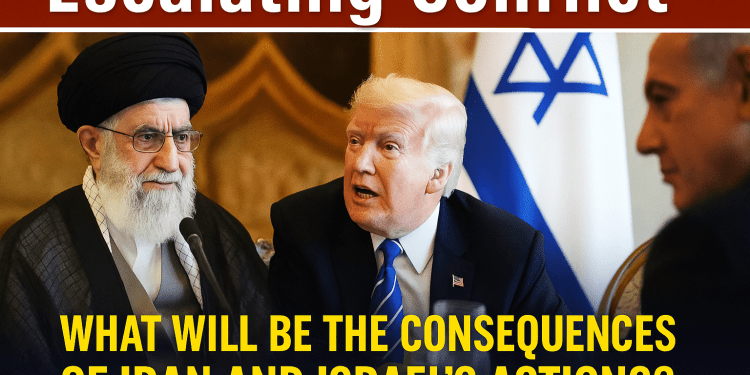Regional War Erupts Following U.S. Bombing of Iranian Nuclear Facilities
The Middle East has entered a dangerous new phase of military confrontation. Just days after the United States launched a precision strike on Iranian nuclear facilities, Iran has retaliated — not with words, but with force. On June 23, 2025, Iranian ballistic missiles slammed into strategic locations across Israel, triggering a massive Israeli response. Meanwhile, the Iranian capital of Tehran was rocked by devastating explosions in what analysts describe as a tit-for-tat escalation that could spiral into a regional war.
Iranian Retaliation: A Show of Strength
According to Iranian state media, dozens of missiles were launched targeting Israeli military and intelligence sites. The Islamic Revolutionary Guard Corps (IRGC) claimed responsibility, stating the operation was a “direct response” to Israeli cooperation in the U.S. airstrikes on Iran’s nuclear infrastructure.
Footage shared across social media and news channels shows fireballs lighting up the skies above Tel Aviv and Haifa. Although Israel’s Iron Dome defense system intercepted several missiles, some managed to hit their targets, causing casualties and significant damage.
Explosions in Tehran: Counterstrike or Covert Operation?
At the same time, reports emerged of massive explosions near Tehran’s military research complexes. Unconfirmed sources suggest a combination of Israeli drones and covert sabotage operations. The Iranian government has blamed the “Zionist entity” and vowed “severe retribution.”
The dual-front chaos has raised alarms across global capitals. NATO allies have called for de-escalation, while Russia and China have condemned the U.S. actions that initially triggered the crisis.
Global Reactions and Economic Tremors
Oil prices soared to their highest point in 18 months as markets reacted to fears of regional instability. Investors rushed to safe-haven assets while airlines canceled flights over Iranian and Israeli airspace. The United Nations Security Council is scheduled to hold an emergency session to address the crisis.
U.S. President’s remarks remained measured but firm: “We will not back down from protecting international security and preventing nuclear proliferation.” Meanwhile, Israel has ordered the full mobilization of its military reserves, and Iran has placed its air defense systems on high alert.
🔍 What Comes Next? A Region on the Brink
With both Iran and Israel showing no signs of backing down, the region is facing its most dangerous moment since the 2006 Lebanon War. Analysts fear that if a ceasefire is not brokered soon, we could witness the outbreak of a full-scale war involving proxies in Lebanon, Syria, and Iraq.
For now, all eyes are on Tehran, Tel Aviv, and Washington — as the world braces for what could be the most consequential conflict of 2025.

